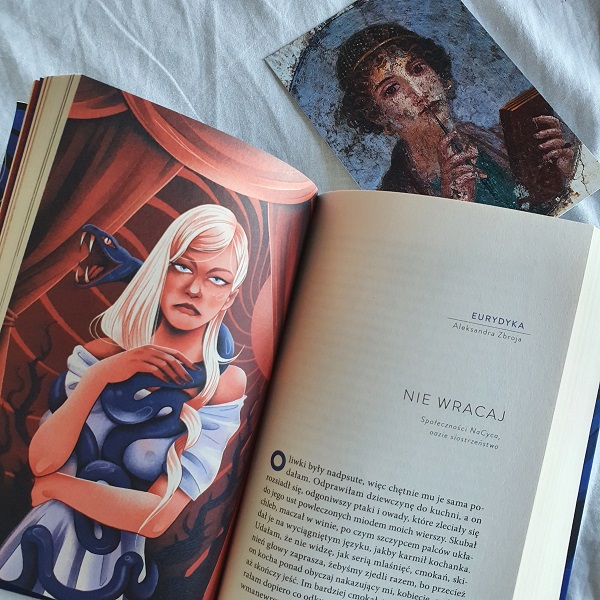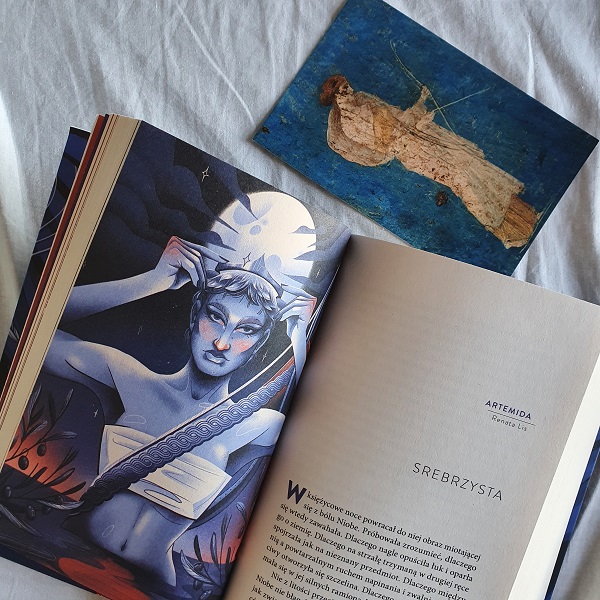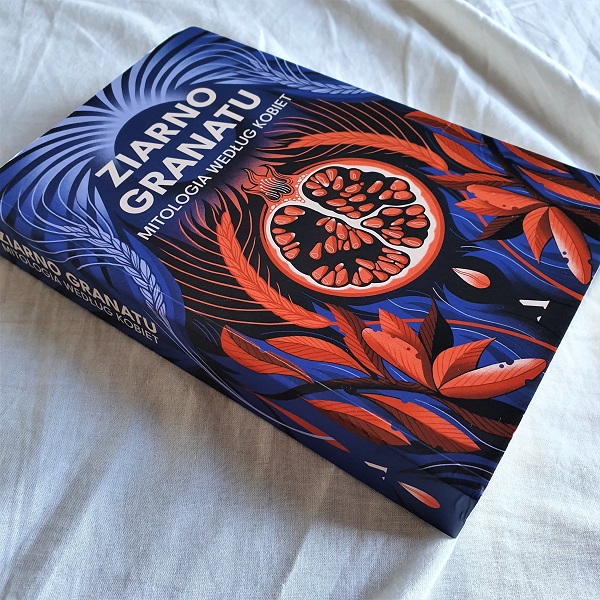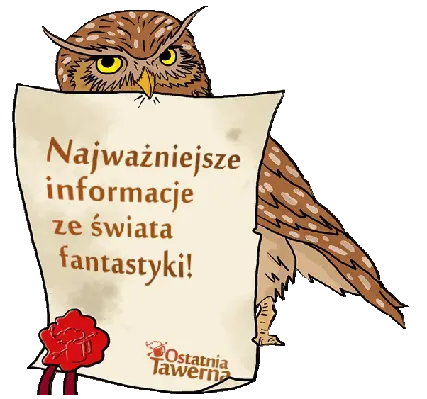This terrifying antiquity
When I was little, I loved reading Parandowski’s Mythology , but even then I was a little stung that there were so few heroines in it. Athena was left to admire, maybe Demeter. The other goddesses didn’t seem overly attractive to me. And mortals? Well, mostly something bad happened to them … My interest in myths was refreshed by the series Scary Historia or Monstrrualna erudycja , in which history and any heroic or martyrdom topoi were treated very ironically. Then I got tired of the repetition of these stories, recurring motifs, over and over again the same solutions, and I actually did not go back to the classics, nor to fantasy or social novels referring to it.
I was a little surprised that Pomegranate Seed intrigued me from the first announcements. Maybe because the world premiere was to take place in my favorite Literary Sopot, or maybe War and love from Mandioka paved his way? The effect was that I waited a lot, and as soon as I got the book, I pounced on my favorite character. And unfortunately I was immediately disappointed. Fortunately, not so much as not to give the other heroines a chance, because this volume contains at least a few literary gems.

Women’s voices
The basic idea of this anthology is to break the silence of mythological heroines, often treated as episodic, even if (supposedly) they were the greatest loves of a hero or a god. In a great conversation for Radio Tok FM , the authors mention a specific analysis of ancient texts by Mary Beard. She was looking for the first message in which the woman was forbidden to speak. She determined that when it comes to our culture, it was the Odyssey , where the son silences his mother, Penelope, and Odysseus himself – his loving nurse, Eurykleja. It was this last act of muffling the voice that became the starting point for a wonderful text by Barbara Sadurska about the funeral of King Ithaca, during which the women of his life meet.
Who else will we hear in Grain Pomegranate ? Eurydice liberating itself from orpheus fame. Aleksandra Zbroja ( Mireczek ) wrote a very bitter, full of anger, not devoid of irony short story. I don’t think you’ll ever look the same at the golden-mouthed bard of the gods and snails again. A completely different tone is found in Dominika Słowik ( Samosiejka ), closing the anthology of Letniczka , very loosely and creatively referring to the character of Kora, reminding me of Tokarczuk ‘s Last Stories . Demeter’s daughter is the only one to appear in the collection twice, Elżbieta Cherezińska ( Harda ) also writes about her.
I was absolutely delighted with the story about which I had the greatest doubts – Jocasta and her love for Oedipus. Joanna Rudniańska mixes times, stories, realities, multiplies the contemporary reflections of the myth, reaches for science fiction. These are strong images, a strong heroine, a wonderful language with which the Jocasts use to tell their consecutive inclusions. You will also find eroticism here, not always easy, provocative like in Hůlova ‘s Plastic M3 . Ziarno also features other hard-to-grasp stories that elude quick interpretations. This is how Weronika Murek ( Cultivation of southern plants using the Miczurin method ) approached the myth of Iphigenia, and Katarzyna Boni ( Container ) sketched a monstrous, wild, horribly hurt Gorgona.

As I mentioned, the story of Jokasta, her son’s lover, was brilliantly, provocatively, but also joyfully redefined by Rudniańska, but this is not the only daring reading of the classic history that you will find in Pomegranate Grain . The story of Grażyna Plebanek ( Highwayman ) about Pazyfae, the mother of the Minotaur, is invigorating, ruthless, full of magic and power. It shows the queen, daughter of Hecate, facing the end of her culture. A victim of Hellenic propagandists that they hurt for the next thousands of years.
Finally, you’ll find some very classic voices here. Agnieszka Jelonek ( It is necessary to be quiet ) will sketch a film about Medea. Kassandra will also speak, sounding a bit like Billy Pilgrim: a traveler after times escaping from the war and obsessively returning to it – and this is in the chapter by Aleksandra Zielińska ( Tadpoles and Molehills ). On the other hand, the story by Renata Lis ( Lesbos ) about Artemis is an almost therapeutic text, an analysis of one’s own succumbing to the pressure of the environment, but also settling accounts with an unloving family.
An integral part of this publication is the artwork, cover and illustrations by Iza Dudzik. Mixing inspiration from Hellenic scenes burned on ceramics (mainly red-figure ones) and modern means of expression, the graphic artist showed strong women, icons of the narrative wandering through the generations. You will be amazed by the strength of Pazyfae and the terror of the Gorgons. You will feel the cool, lunar charm of Artemis. Finally, you will be touched by the fragility of Kory-vacationer.
Pomegranate grain is not a perfect anthology, but it is a great start to a discussion about myths and legends, about the role of anti-heroines or romantic muses in the topos of our culture. There are outstanding, revealing texts, and there are also some not very successful ones. I will probably be happy to return to some of them one day, others did not bring anything new to my understanding of mythology or literature. Thanks to the former, it is an important collection that you will read with pleasure, forgetting about the latter. Because it is not enough just to speak, it must be done in such a way that the listeners shiver and understand the depth of your story.


